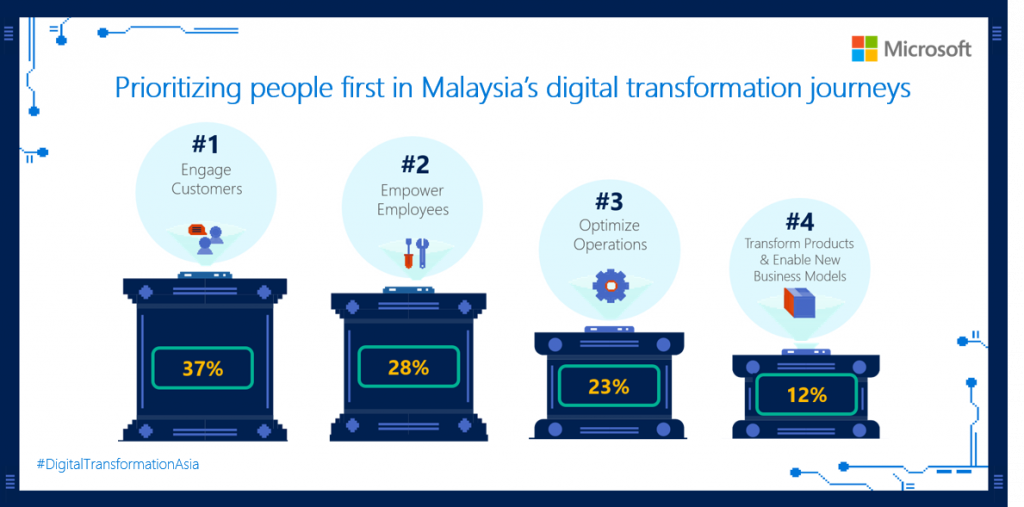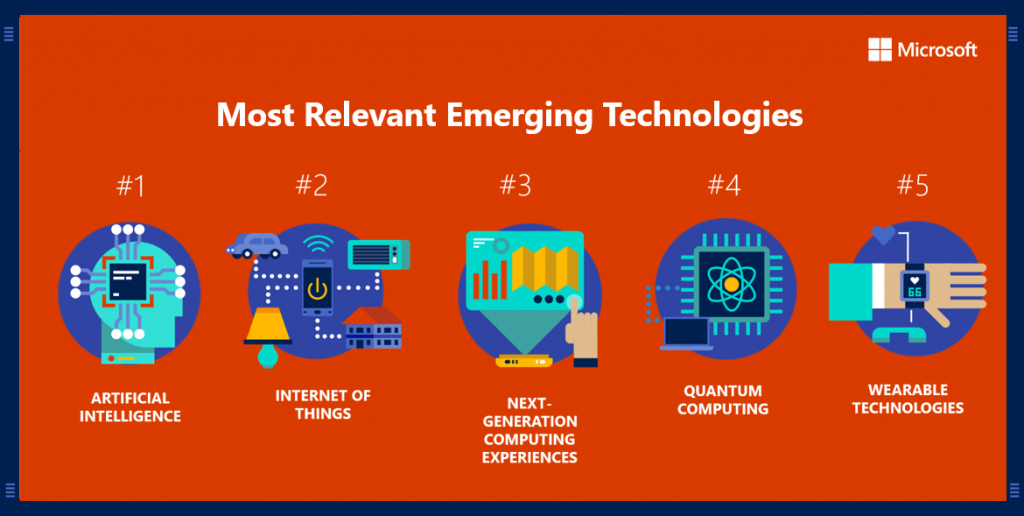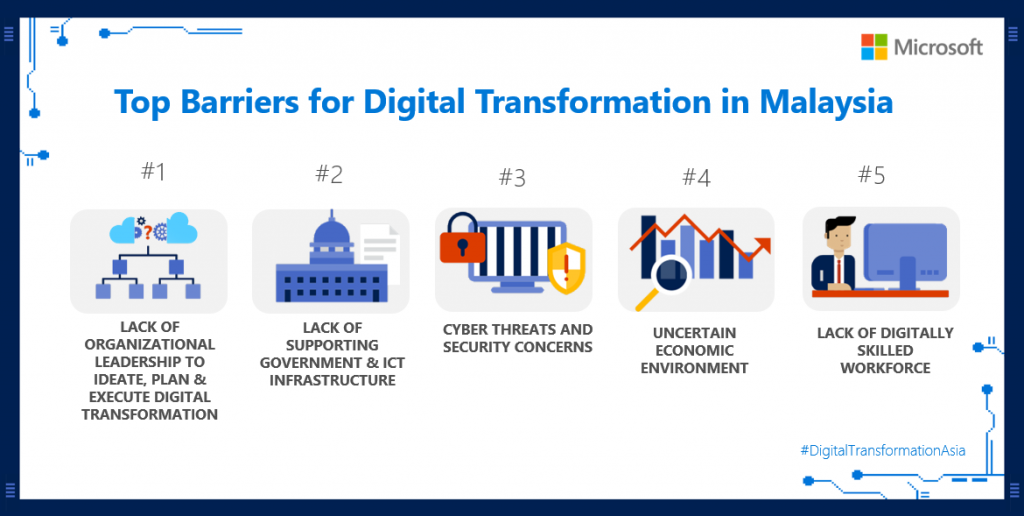
Kuala Lumpur, 21 June, 2017– Business leaders in Malaysia are showing urgency in embracing the 4th Industrial Revolution, where 80% of them believe that they need to transform to a digital business to enable future growth. These are some of the key findings of the Microsoft Asia Digital Transformation Survey[1] to understand how business leaders are embracing the digital era.
Even as majority of business leaders are aware of the urgent need to transform digitally to address the changing business climate, the study found that the transformation journey for most organisations in Malaysia is still at its infancy. While, only 34% of business leaders have a full digital transformation strategy and less than half (47%) are in progress with specific digital transformation initiatives for selected parts of their business. 19% still have very limited or no strategy in place.
Michal Golebiewski, Chief Marketing & Operations Officer, Microsoft Malaysia said: “The Microsoft Asia Digital Transformation Study has shown that business leaders have started to act on the need for digital transformation to address the challenges and opportunities within their organisations. We have learnt that organisations that do not evolve fast enough will be less competitive or even obsolete as they face disruptions in every industry. We urge organisations of all sizes to digitally transform themselves amidst changing demands externally and internally, to stay relevant. At Microsoft, we believe this involves transformation in four key pillars – empowering employees, engaging customers, optimizing operations and transform with new products, services or business models, and data and the cloud are key enablers of these.”

Said Michal Golebiewski, Chief Marketing & Operations Officer, Microsoft Malaysia, “It was interesting to learn that 88% of business leaders felt that new data insights would lead to new revenue streams. And yet, it is concerning to see that while there is widespread acknowledgement on the need to transform, they are doing so incrementally. With constant pressure from newer, agile and tech savvy players disrupting across industries in Asia, the transformation of products and new revenue models provides the greatest opportunity for organisations to truly lead rather than be disrupted. Leaders need to rethink business models, find new data insights which lead to new revenue streams.”
The Microsoft Study was launched in the presence of Malaysia Digital Economy Corporation (MDEC). Norhizam bin Abdul Kadir, Vice President, Growth Ecosystem Development, MDEC said, “As technology changes the rules of business, it is important to future-proof the Malaysian economy by building a strong digital innovation ecosystem. The digital economy aims to contribute 20% to our GDP by 2020. Malaysian businesses need to jump onto the bandwagon and embrace digital transformation. The ability to unlock value from the digital economy is far from being fully exploited thus making now the best time for Malaysia to sprint to the front of the race.”
Barriers to Digital Transformation in Malaysia
Digital transformation will bring significant benefits for both businesses and employees. According to business leaders in the study, the top barriers to digital transformation are, in order of priority:
Leaders need to change the way they interact, communicate and fully grasp the potential of digital transformation has to offer to their organisation. In line with that, if a CEO is unable to, then there needs to be someone in a dedicated role coaching and leading the change – like a Chief Digital Officer or CIO who steps up to lead the business. According to the Study, 37% of the respondents believe that CEOs would driving the digital transformation strategy in Malaysia’s organizations in the future. Respondents also indicated that CIOs and Chief Digital Officers should also take a leadership role in driving the digital transformation within the organization
The Fourth Industrial Revolution
Technology advancements have ushered in the 4th Industrial Revolution, where cutting-edge technologies such as Internet of Things (IoT), artificial intelligence (AI), advanced data analytics, and mixed reality are powered by cloud computing to create limitless possibilities in transforming the way people work, live and play. This revolution, together with rapid urbanization, emergence of the millennial workforce and a fragile global economic climate, is ushering societal and economic changes at an unprecedented pace.
According to the respondents in Malaysia, the most relevant emerging technology to an organisation’s digital transformation efforts is Artificial Intelligence (75%) and least is wearable technologies (57%).
The Microsoft Asia Digital Transformation Study surveyed 1,494 business leaders from Asia, including 113 from Malaysia. All respondents were pre-qualified as being involved in shaping their organizations’ digital strategy.
To find out more about how Microsoft is enabling digital transformation for organisations, visit enterprise.microsoft.com.
[1] The Microsoft Asia Digital Transformation Study was conducted between October to November 2016 involving 1,494 business leaders in 13 Asia Pacific markets. The 13 markets include Australia, China, Hong Kong, Indonesia, India, Japan, Korea, Malaysia, New Zealand, the Philippines, Singapore, Taiwan and Thailand. All respondents were pre-qualified as being involved in shaping their organisations’ digital strategy, and are working in firms with more than 250 employees.

